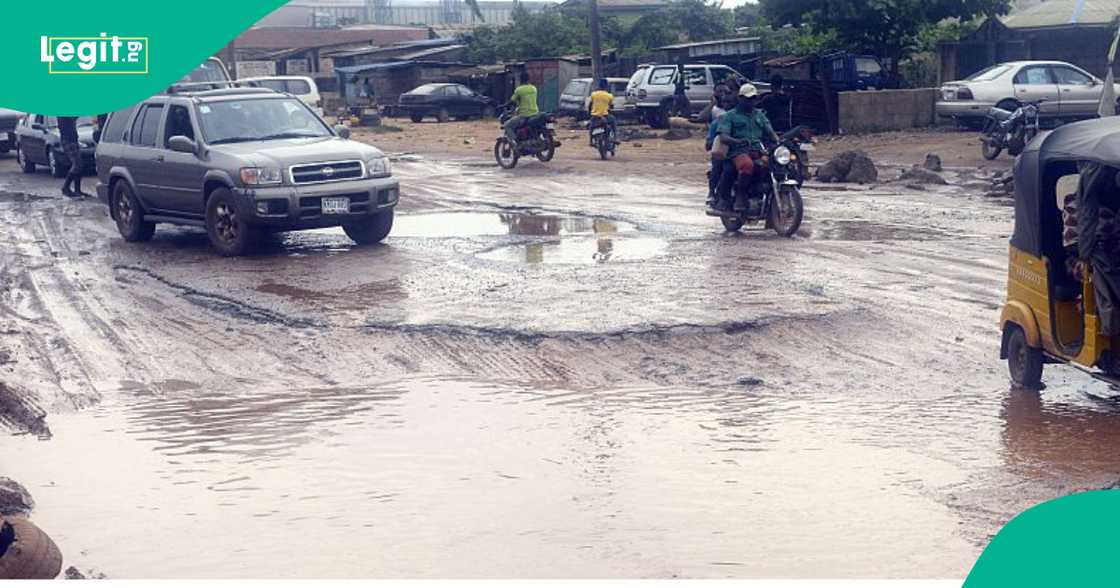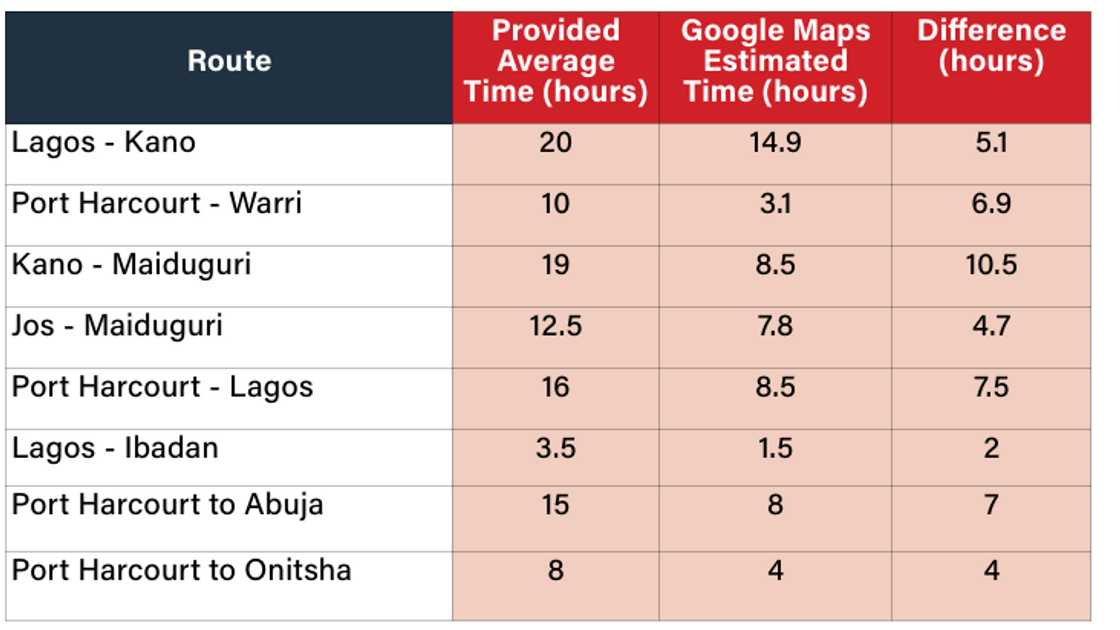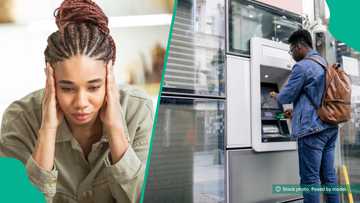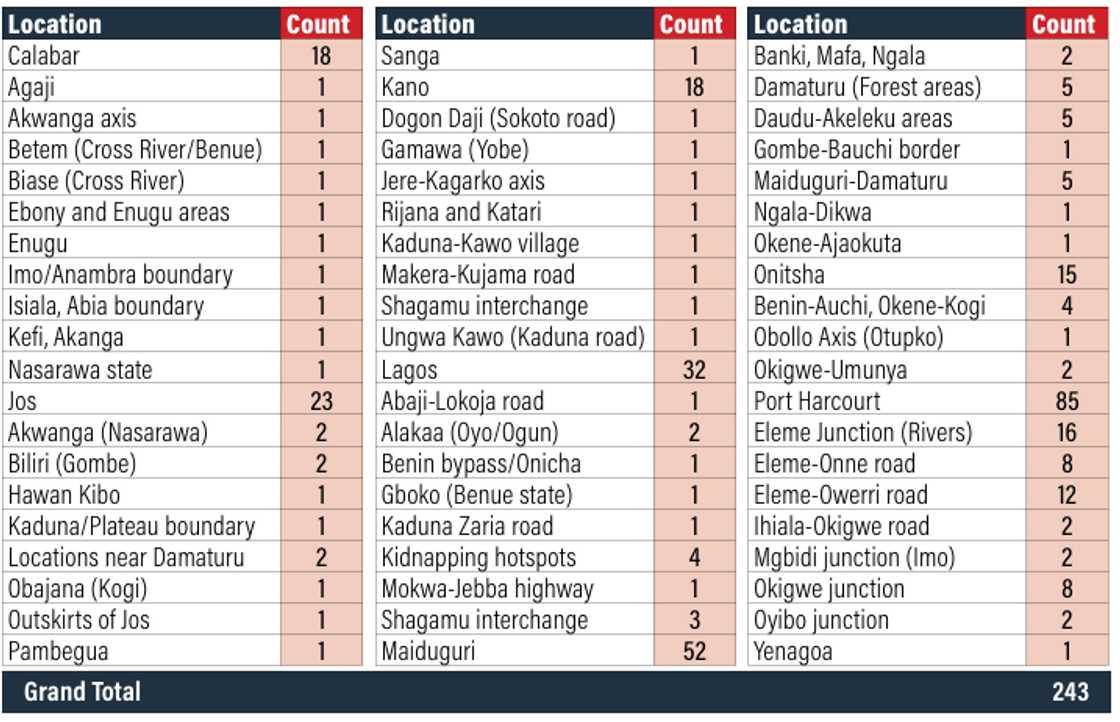New SBM Intelligence Report Shows Economic Cost of Bad Roads in Nigeria, Dangerous Security Spots
- A new report from SBM intelligence has revealed how bad roads across the country are costing the economy daily
- Some of the costs of bad roads mentioned in the report include increased travel time, vehicle costs, and transport prices
- The report also showed that better infrastructure can cut delays, costs, and risks, boosting safety and economic growth
Legit.ng journalist Dave Ibemere has over a decade of business journalism experience with in-depth knowledge of the Nigerian economy, stocks, and general market trends.
Nigeria’s inadequate road infrastructure poses significant economic challenges, costing billions annually in lost productivity and resources.
This is according to a recent nationwide survey report titled "Roads to a Bumpy Ride Through Nigeria’s Roads" by SBM Intelligence, made available to Legit.ng.

Source: Getty Images
The report noted that roads are central to the country’s commerce and critical lifelines connecting cities, villages and markets.
SBM Intelligence explained that the deteriorating state of these roads disproportionately impacts commercial drivers, whose voices are often excluded from broader transportation policy discussions.

Read also
NCC, MTN, other telcos reportedly agree on 100% tariff hike, to invest proceeds on infrastructure
Key points from SBM intelligence report
In the report, 245 drivers were interviewed across eight major commercial hubs, and they highlighted widespread dissatisfaction with road conditions.
Vital issues identified include potholes (32.9%) and security concerns (25.6%), with many drivers reporting that poor infrastructure extends travel times beyond predictions by standard navigation tools.
The survey also revealed traffic flow patterns, with evening hours (5 p.m. to 8 p.m.) experiencing the heaviest congestion on interstate highways.
While some routes, such as Bauchi to Kano, Kano to Abuja, and Jos to Bauchi, have seen improvements, drivers in Kano pointed out that the federal roads are still bad due to government abandonment, poor drainage, and incomplete projects.

Source: Facebook
Security issues from bad roads
SBM Intelligence stated:
"These deficiencies exacerbate security risks, with 84.6% of respondents reporting incidents or threats along travel routes.
"Dangerous hotspots were identified in urban centres critical for interstate travel like Lagos, Maiduguri, and Port Harcourt, the latter being the most dangerous due to rampant kidnapping and limited police patrols.

Read also
Nigerians rescued by Opay, PalmPay, other fintechs as traditional bank customers lament poor service
"Insecurity is a significant concern, with an overwhelming 84.6% of respondents reporting that they had either experienced or heard of security incidents along their travel routes. A majority of 58% viewed the roads as unsafe, with 34.7% expressing frequent security concerns and 23.3% indicating significant fears of insecurity. This highlights a prevailing sense of unease among road users.
"Hotspots such as the Port Harcourt-Warri route have emerged as high-risk areas for theft, attacks, and kidnapping, particularly during peak travel hours when commuters are most vulnerable."

Source: Facebook
Vehicle maintenance cost
Other issues mentioned in the report include the poor road state that drives up vehicle maintenance costs.
Bunmi Bailey, head of research at SBM Intelligence, gave insight into the report and told Legit.ng:
"The poor state of roads also drives up vehicle maintenance costs, with nearly half (49%) of respondents reporting increased expenses and shorter vehicle lifespans. These rising costs compel most transport operators to adjust pricing, burdening consumers."
Looking ahead
SBM Intelligence stressed that addressing these infrastructure deficits is an economic and social imperative.
It stated:
"Improved road conditions would reduce delays, lower operational costs, extend vehicle lifespans, and stabilise transport pricing, fostering a more efficient and sustainable system. Moreover, enhanced infrastructure would mitigate security risks, improve driver and passenger satisfaction, and unlock economic growth in affected regions.
"This comprehensive approach is critical to revitalising Nigeria’s transportation sector and boosting overall economic productivity."
Sani bemoans lingering banditry, terrorism menace
Ealier, Legit.ng reported that another report from SBM Intelligence revealed that Nigerians paid N1.048 billion in ransom between July 2023 and June 2024,
The report, which detailed the abduction of 7,568 individuals across Nigeria during this period, highlights the growing threat of kidnapping for ransom in the country.
Zamfara recorded the highest number of incidents of kidnapping, with 132 cases and 1,639 victims
PAY ATTENTION: Сheck out news that is picked exactly for YOU ➡️ find the “Recommended for you” block on the home page and enjoy!
Source: Legit.ng



